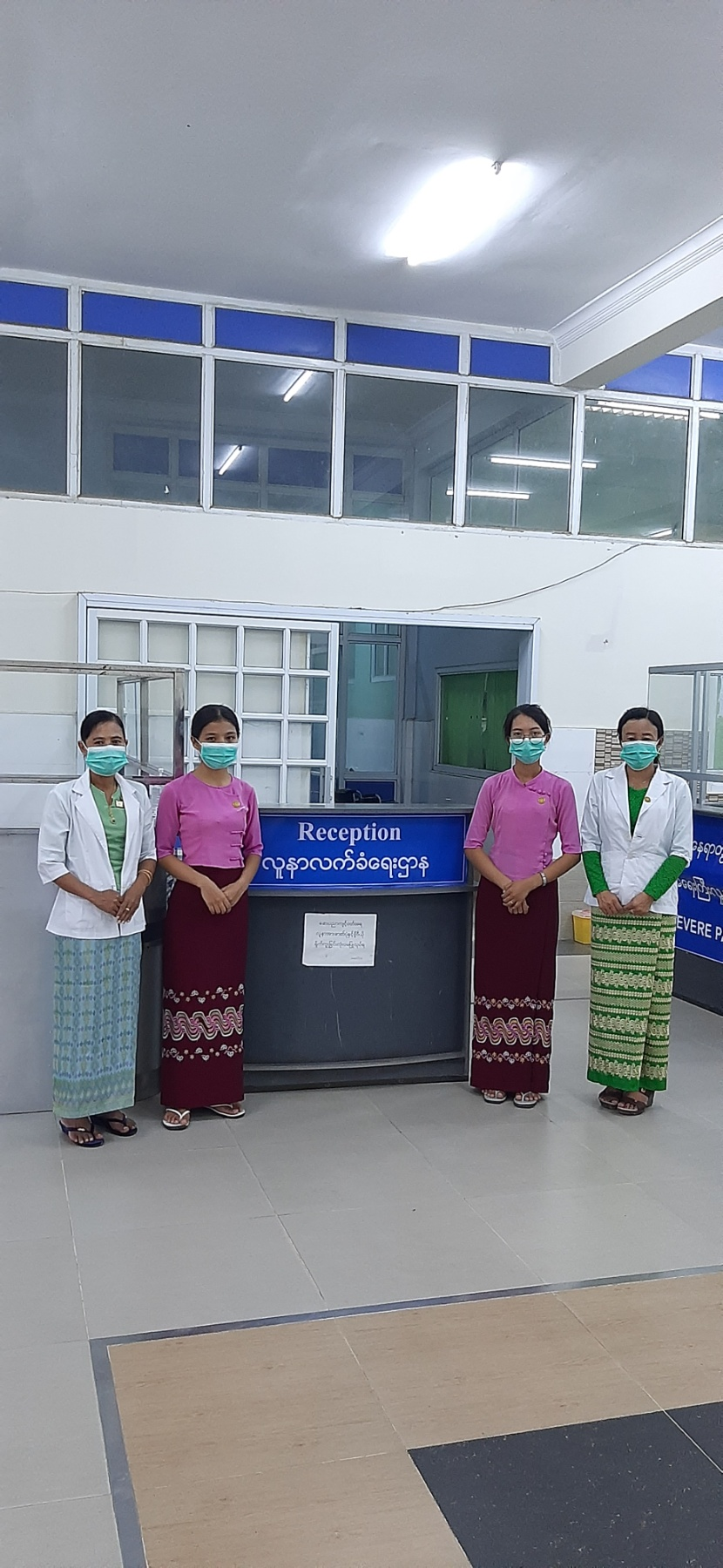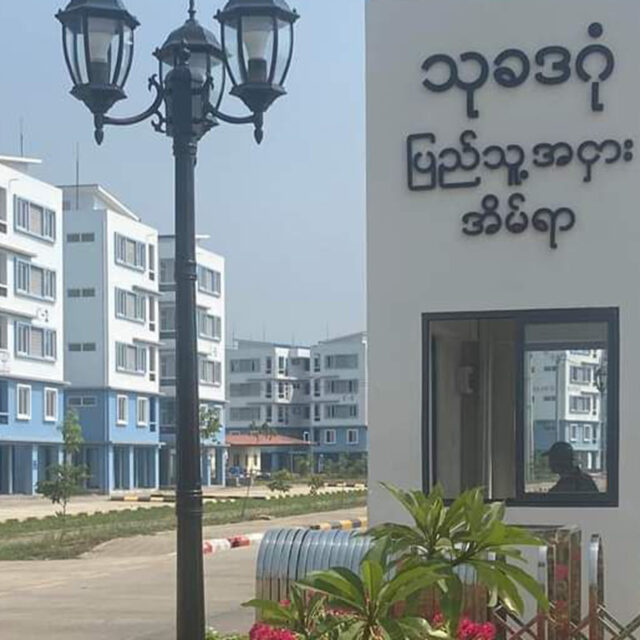By Dr Than Lwin Tun
In a hospital, the Outpatient Department (OPD) is the main link of the hospital with the community. It reflects the public image as well as the shop window of the hospital. For a person who visits the hospital, the first point of contact is the Front Office or Desk which can vary depending on the size of the hospital, and the number of employees that work there.
The front office includes a reception desk to greet patients and visitors as they enter the hospital and provide information about where to go, or the services that are provided. Registration services may also be available in the front office of the hospital; patients can provide their name and contact information, as well as any other information requested, such as emergency contact details. Certain administrative tasks may also be completed in a hospital front office, such as the maintenance of records and paperwork throughout the hospital. Generally, the purpose of a front office is to provide assistance for people when they first enter the hospital.
The receptionist in the front office of a hospital will greet people when they enter and determine how he or she can help them. Providing directory assistance is another common task for someone who works in a hospital front office. People coming into the hospital might need directions to certain areas to visit someone, or they may need to get in touch with a particular person. Security staff might also be stationed at the hospital front office so they are ready to be called to a specific area if needed. Working in the front office of a hospital can be a stressful, fast-paced job, and it is necessary for anyone in this position to enjoy working with people, and to be able to remain calm in challenging situations.
The OPD is a crucial wing of any hospital, offering a range of medical services to patients who do not require overnight hospitalization. It plays a vital role in healthcare delivery by providing essential medical care, diagnosis, treatment, and follow-up services. The following is the overview of the crucial role of the outpatient department in a hospital;
- Primary Access Point: The OPD serves as the primary entry point for most patients seeking medical care. It provides accessible and timely medical attention to a wide range of medical issues, including minor illnesses, injuries, routine check-ups, and chronic disease management.
Diagnosis and Treatment: OPD services encompass various medical specialities, including internal medicine, paediatrics, dermatology, orthopaedics, ophthalmology, ENT (ear, nose, and throat), and more. This allows for comprehensive diagnosis and treatment across different medical conditions. - Early Detection and Prevention: Regular OPD visits facilitate early detection of diseases and health issues, which can significantly improve patient outcomes. Health screenings, vaccinations, and health education play a role in preventive care and disease management.
- Chronic Disease Management: Patients with chronic conditions such as diabetes, hypertension, asthma, and arthritis require ongoing medical care. OPD services provide continuous monitoring, medication adjustments, and lifestyle guidance to manage these conditions effectively.
- Reduced Hospitalization: By providing prompt medical attention in an outpatient setting, many patients can avoid unnecessary hospitalization. This helps reduce healthcare costs, minimizes the strain on hospital resources, and allows hospitals to prioritize more critical cases.
- Convenience for Patients: OPD services offer flexible appointment schedules, reducing waiting times and providing convenience for patients. This is particularly important for patients who have busy schedules or need to balance work and health appointments.
- Specialist Consultation: Hospitals often have specialist doctors available in the OPD, allowing patients to consult with experts without the need for referral. This is especially valuable in cases where a second opinion or specialized treatment is required.
- Follow-Up Care: After being discharged from the hospital or after a surgical procedure, patients often require follow-up care. OPD services offer this follow-up care, ensuring that patients recover properly and any complications are addressed promptly.
- Emergency Care: While not as extensive as an emergency department, the OPD can handle certain minor emergencies, providing immediate medical attention for injuries, infections, and other acute conditions.
- Health Promotion and Education: OPD staff can provide patients with valuable health information, guidance on maintaining a healthy lifestyle, and advice on managing chronic conditions effectively.
- Reduced Wait Times: With the appropriate management and allocation of resources, OPD services can help reduce the burden on emergency departments and inpatient units, leading to reduced wait times and improved overall patient care.
In addition, one of the Missions of the Department of Medical Services (DMS), the Ministry of Health is improving the quality of medical services in public hospitals. The Outpatient Department including Font Office or Desk is a fundamental component of a hospital’s healthcare services. It provides for a wide range of medical needs, promotes early detection and preventive care, manages chronic conditions, and ensures that patients receive timely medical attention.















